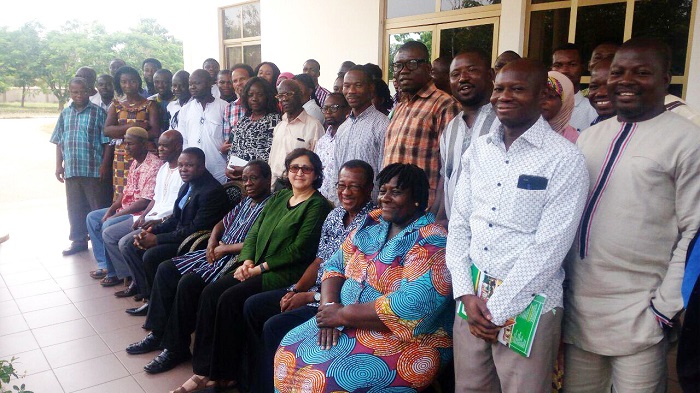
Women, girls have central role in attaining SDGs
In September 2015, governments united behind an ambitious global agenda that featured 17 Sustainable Development Goals (SGDs) and 169 targets, adopted by the United Nations (UN), after years of negotiations, as the post-2015 development agenda, that replaced the Millennium Development Goals (MDGs), whose target date was set to expire at the end of 2015.
Advertisement
By adopting the SDGs, the member states of the UN thus signed on to a set of goals which they hope to achieve within a period of 15 years, by the end of 2030 to make the world a more peaceful, inclusive, better and sustainable one.
The UN Women, in looking at the new global 2030 road map and SDGs analysed how women and girls, who make up more than half the world’s population, are affected by each of the 17 SDGs, as they are on the front line. often more deeply impacted than men and boys by poverty, climate change, food insecurity, lack of healthcare, and global economic crises.
It contended that, women and girls can - and will - be key to achieving each of these goals, and for that reason, their contributions and leadership are central to finding a solution to the attainment of the goals.
Sharing knowledge
To share knowledge and experiences for the attainment of the SDGs and to ensure a better life for all, especially the vulnerable in the country, the United Nations Development Programme (UNDP) and the Institute for Interdisciplinary Research and Consultancy Services (IIRaCS) of the University for Development Studies (UDS), last Tuesday held a two-day forum at the Tamale campus of the UDS.
Held on the theme: “The Role of Tertiary Institutions in Localising and Achieving the Sustainable Development Goals (SDGs), the forum was also to discuss and document the role of tertiary institutions in localising and achieving the SDGs.
The Vice Chancellor (VC) of the University for Development Studies (UDS), Professor (Prof.), Gabriel Ayum Teye, in his address, read by Prof. Israel Dzormeku, the Dean of Students, called on universities to take a second look at their curricula to ensure that existing programmes were tailored towards helping Ghana to achieve the SDGs.
He also urged universities and all other tertiary institutions in the country to include the issues of gender, environment and climate change, poverty, peace and conflict management among others, when developing new programmes of studies, in order to help Ghana attain the set targets for the SDGs both at the community and national levels.
“In contributing to the achievement of the SDGs, tertiary institutions which by their operations are development agents, now have the responsibility, more than ever before, to integrate sustainable development into all their activities - teaching, research, community engagement and campus operations because a central component of the SDGs is the issue of sustainability as we need not only to make our world a better place for ourselves but also to leave it in a better shape for future generations,” he stated.
Localising SDGs
Prof. Teye noted that, what tertiary institutions needed to do to help Ghana attain the set targets for the SDGs was to relate their functions of teaching, research and community outreach to the SDGs.
He noted that localising and achieving the objectives of the SDGs were not the responsibilities of any sole actor but the collective responsibility of all, including the governments, academia, civil society groups, the media and the framers of the SDGs, the United Nations (UN) and its agencies.
Prof. Teye added that the impact that tertiary institutions could make in achieving the SDGs would be greatly enhanced if they interacted with each other and the government and non-governmental organisations (NGOs) to share ideas and unify actions.
Collaboration
For his part, the Director of IIRaCs, Dr Edward Salifu Mahama, lauded the collaboration between the UDS and the UNDP, which he said, was in line with the function and mandate of the institute to engage in activities that are directly related to the developmental and environmental needs of society with emphasis on Northern Ghana, adding that it was for this reason that are we think, our involvement on how the SDGs could be localised was crucial.
The Country’s Economic Advisor of the UNDP, Madam Radhika Lal, said the attainment of the SDGs was the responsibility of all, hence the decision by the UNDP to partner the UDS to help in achieving the SDGs in Northern Ghana, and in the country at large.




